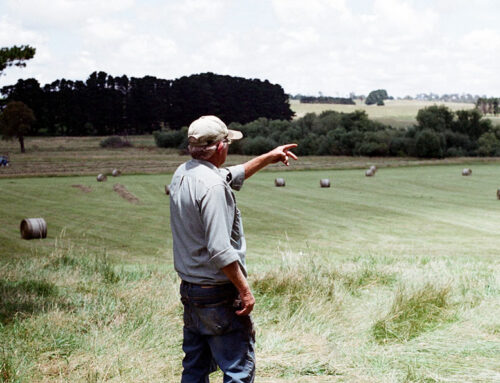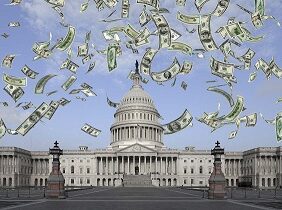Tomorrow is Earth Day! A day where people think about the environment and what will be left to future generations.
One thing we know will be left to future Americans is $31.5 trillion of federal debt. Maybe it is just coincidence, but this week also saw lawmakers kick off more discussion of budget cuts as a condition of raising the debt ceiling.
Don’t do it.
To be clear, nothing, and we mean nothing, should be paired with the necessary debt ceiling increase. No cuts, no policy prescriptions. It should not be a thing. In concept, it makes sense, but in practice it has done more harm than good.
Lawmakers should vote to increase the debt limit lickety-split. Again, there should be no negotiation on the debt limit because Congress already approved the spending that got us here. Lawmakers should just get rid of debt ceiling cudgel. Our country cannot routinely have the full faith and credit of the U.S. Treasury held hostage to extract some political leverage. C’mon – the debt limit was raised three times during the Trump Administration.
Another Republican President had this to say:
“Congress consistently brings the Government to the edge of default before facing its responsibility. This brinkmanship threatens the holders of government bonds and those who rely on Social Security and veterans benefits. Interest rates would skyrocket, instability would occur in financial markets, and the Federal deficit would soar. The United States has a special responsibility to itself and the world to meet its obligations.”
That was Ronald Reagan.
So, pass the debt limit increase. After that, look at ways to get our budgetary house in order. In a convenient Earth Day tie-in, TCS and allied organizations just released Green Scissors, a laundry list of ways to cut government spending that is both wasteful and environmentally harmful.
The Green Scissors database is a compilation of approximately $350 billion in federal spending on programs that, if cut, could deliver a win-win for both taxpayers and the environment. It calls out wasteful projects and subsidies in agriculture, energy, infrastructure, and public lands.
Green Scissors is a coalition of Taxpayers for Common Sense, Friends of the Earth, R Street Institute, U.S. PIRG, and Environment America. The coalition has fought for nearly 30 years to make environmental and fiscal responsibility a priority in Washington. Eliminating subsidies and programs identified in Green Scissors would allow the federal government to reduce long-term environmental and climate liabilities while also saving taxpayer dollars in the short-term.
Fortunately, fiscal discipline and environmental stewardship are the theme this week. Some of the programs in Green Scissors fall within the massive, once-every-five-years farm bill, which is also up for reauthorization.
The updated Green Scissors database includes long-time programs like flood and crop insurance that have been on the books for decades as well as new bioenergy subsidies in the Inflation Reduction Act enacted last year.
Here is a flavor of what is inside the Green Scissors database:
- Fossil fuel industry tax breaks
- Loan guarantee programs, ranging from those at the Department of Energy (DOE) to the U.S. Department of Agriculture (USDA)
- Federal grazing and mining law reforms
- Subsidies for confined animal feeding operations, logging, and more
- Inland waterway subsidies, flood insurance reform, and Essential Air Service
And there are plenty of other opportunities for deficit reduction. Absent reforms to shore up the programs’ finances, Social Security and Medicare beneficiaries will be facing benefit cuts in the future. Reforms can increase revenue to ensure the program is there for future generations. The Pentagon accounts for roughly half of discretionary spending, and as we have often written, one great way to reduce Pentagon spending is to let the military services retire outdated weapon systems. (Cough – the Littoral Combat Ship – cough!). But Congress, being Congress, gets in the way of these common sense cuts.
TCS has been hard at work for decades recommending ways to rein in wasteful federal spending, through Green Scissors, farm bill recommendations, eliminating wasteful weapon systems and parochial projects, and more. The good thing is that there’s no shortage of ideas for ways to rein in our nation’s finances. Long-time Wastebasket readers will remember our “Super Cuts for the Super Committee,” with more than $1 trillion of deficit cuts back in the days of the Joint Select Committee on Deficit Reduction.
In a nutshell, Congress must learn lessons from years past. Raise the debt ceiling – for spending that’s already been approved. Then, don’t be afraid to dig in, root out waste, and plant a better fiscal future for generations to come.
Go plant a tree.











Get Social